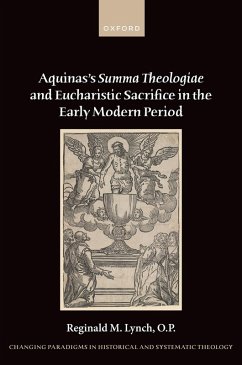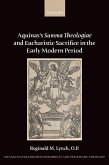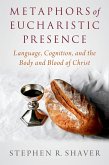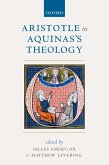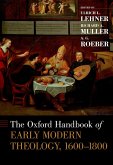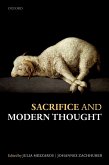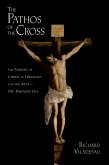This book is focused on the reception history of Thomas Aquinas' account of Eucharistic sacrifice during the sixteenth and early seventeenth centuries. Although the sacrificial character of the Eucharist has been of interest to theologians throughout the Church's history, during the early sixteenth century renewed attention was given to this subject, in part because of disputes that arose between Reformed and Catholic theologians about the relationship between the Eucharistic liturgy and Christ's sacrifice on the cross. Does the Eucharistic presence itself have a sacrificial quality? Can aspects of the liturgy or dimensions of the moral life be considered a sacrifice, and if so in what way? The emergence of these and other new questions in Eucharistic theology at the beginning of the sixteenth century coincided with a shift within the practice of theology in universities that began to emphasize Aquinas' Summa theologiae as the standard text of theological instruction, in place of Peter Lombard's Sentences. Because of the Summa's relatively late ascendency as a text of commentary and instruction, studying the Summa's reception history involves the interpreter in a complex textuality. Although itself a product of the middle ages, as a received text the Summa is in many ways a creature of the early modern period. Interpreting the reception of this text therefore requires one to consider not only the Summa in its original environment, but the life of this same text as it was received in new interpretive contexts.
Dieser Download kann aus rechtlichen Gründen nur mit Rechnungsadresse in A, B, BG, CY, CZ, D, DK, EW, E, FIN, F, GR, HR, H, IRL, I, LT, L, LR, M, NL, PL, P, R, S, SLO, SK ausgeliefert werden.

